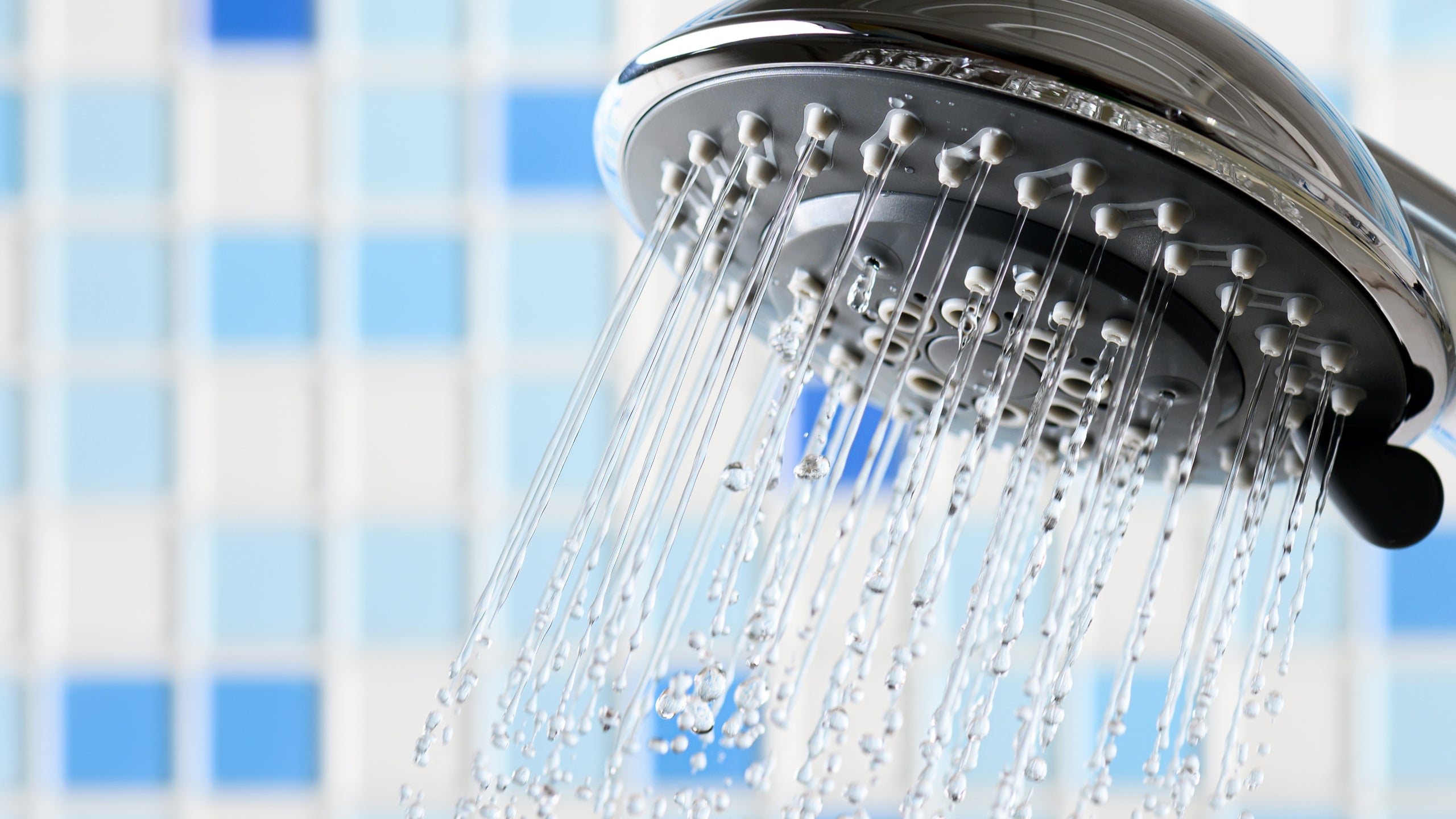Are mineral deposits in your shower water making your eczema worse? Water rich in minerals including magnesium and calcium is considered ‘hard water.’ Since showering and washing habits play a role in atopic dermatitis, you may wonder how hard water and eczema affect each other. Recent research illustrates how water quality can impact the inflammatory skin condition — and whether or not a water softener should be part of your eczema toolkit.
The Connection Between Hard Water and Eczema
So, can hard water cause eczema — actually? Just like salt water and eczema, hard water can impact your skin. Research has found a positive association between living in hard water areas and atopic eczema in children.
A meta-analysis of 16 observational and experimental studies found that children who were exposed to hard water early in life had an increased chance of developing eczema compared to children living in soft water areas.
Why Does Hard Water Cause Eczema?
A 2017 study from the University of Sheffield and King’s College London found that hard water damages the skin’s natural barrier because of its high alkalinity.
Healthy skin has a low pH balance, meaning it’s highly acidic. Frequent exposure to hard water can raise your skin’s natural pH level. This disrupts your skin barrier, which protects your body from foreign invaders. When bad bacteria overpopulate the skin as a result of a damaged skin barrier, eczema can develop. A weakened barrier also increases the risk of irritation from household products, weather, and topical skin care, which can then exacerbate atopic dermatitis.
Hard Water Eczema Treatment
If you have a hard water rash, you’re probably wondering how to treat it and asking questions like, “Does filtered water help eczema?” Anecdotally, both filtered water and water softeners have been said to improve people’s skin health.
However, the research tells a different story. The Softened-Water Eczema Trial (SWET) by Nottingham’s Centre of Evidence-Based Dermatology team evaluated 336 children over a 16-week span.
One group of children had an ion-exchange water softener installed in the home — in addition to their usual eczema care. The second group didn’t have water softeners installed and only received their usual eczema care.
Researchers found no difference in the severity of eczema, scratching at night, or need for topical creams when using a water softener versus not.
Healthy Washing Habits for Eczema
That means even in the case of hard water, pursuing creams, lifestyle adjustments, and other eczema treatments are likely your best solutions. Always consult with your primary healthcare provider or a board-certified dermatologist for a customized treatment plan for your skin.
As a general guideline, whether your home has hard water or not, it’s important to bathe in lukewarm water for no longer than necessary. Limit baths and showers to no more than 10 minutes. Use lukewarm, not hot, water. Ensure your cleansers, shampoos, and other bath products are minimally formulated and microbiome friendly, and check out our recent article The Best Soap for Your Skin Type for guidance.
Add Gladskin To Your Bath and Shower Routine
Gladskin's Body Wash is formulated with just four ingredients, and our Shampoo Bar contains just 8 ingredients. These products are both fragrance-free, hypoallergenic, and won't disrupt your skin microbiome, which makes them great starting points for a gentler, safer shower time routine.After your shower is the best time to apply moisturizer and any eczema creams. Gladskin Eczema Cream with Micreobalance® restores balance to your skin’s microbiome as it moisturizes. Plus it’s steroid free and clinically proven to reduce eczema symptoms.
Ready to give it a try? Check out our Eczema Cream + Body Wash Set.

